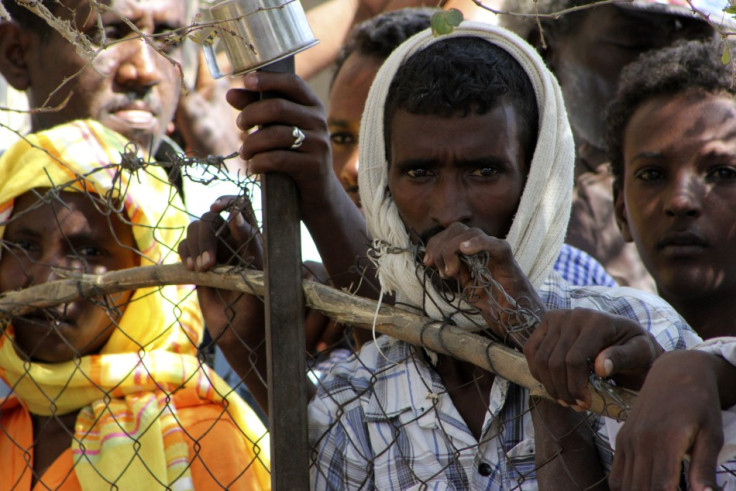Eritrea to Face UN Human Rights Investigation

The UN Human Rights Council has agreed to launch a year-long inquiry into human rights abuses in Eritrea, according to reports.
The three-strong inquiry into "widespread and systematic" violations by Eritrea's government will be similar to previous investigations into Syria, North Korea and Sri Lanka.
The inquiry will include Sheila B Keetharuth, the UN special rapporteur on human rights in Eritrea and two experts from Africa and Europe. Among the violations cited by the 47-state forum are arbitrary executions, restrictions on religion, detention of journalists and shoot-to-kill policy for citizens trying to cross the border, Reuters reported.
The UN refugee agency said 313,000 people have fled Eritrea, about 6 per cent of a population that Keetharuth said was estimated at 5 million.
Torture, arbitrary detention and severe restrictions on freedom of expression are routine in the so-called "North Korea of Africa".
Mandatory military service, imposed on all men and women between 18 and 55, is one of the main causes of flight from the country. It has been calculated that 4,000 Eritreans leave the country every month. Keetharuth said conscription in Eritrea is equal to indefinite forced labour.
It has been calculated that Eritreans now make up the single largest nationality among people fleeing in Europe across the Mediterranean.
A study, released by human rights activist, reported that between 2007 and 2012, some 25,000 to 30,000 migrants were trafficked by Eritrean and Sudanese security officers, who are believed to collude with Bedouin gangs.
According to the study, Eritreans are abducted by senior military officers and smuggled into Sudan. There, they phone the victims' families and threaten to sell the hostages to Bedouin traffickers in Sinai, if relatives do not raise tens of thousands of dollars.
A special investigation by IBTimes UK confirmed that the Eritrean government still collects a controversial "diaspora tax" from nationals living in the UK - despite assurances by British officials that the practice has been stopped.
The collection of a 2% income tax on Eritrean nationals living abroad violates UN resolution 2023 which condemns Eritrea's use of the tax to "destabilise the Horn of Africa region and to violate the sanctions regime". Some of the money is used to procure weapons for Islamic militants.
The UN Security Council hardened sanctions against Eritrea in December 2011 over its alleged support for Islamist militant groups such as Somalia's al-Shabaab.
The Eritrean government has refused to cooperate with Keetharuth and called the report "biased and unfounded".
Ambassador Yusuf Mohamed Ismail of Somalia, who had initiated the call for an inquiry, said that the human rights crisis in Eritrea "has been forgotten for too long and the scale of the violations is unparalleled, putting the country amongst the worst human rights situations worldwide".
The inquiry was voted by the 47-state forum without a vote. China, Pakistan, Venezuela and Russia indicated that they had reservations but did not try to block the investigation.
© Copyright IBTimes 2025. All rights reserved.





















